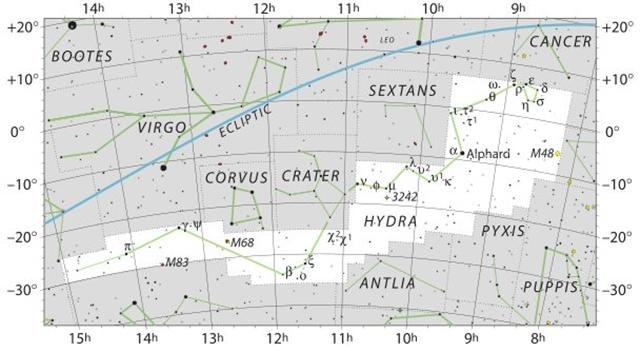|
7. It can hardly be denied that 100 (= 366 - 266) seems to be connected with finals, for instance is Rei in Ga4-17 probably a mark for a new beginning, where ν Hydrae indicates the beginning of a steep slope downwards:
In Ga7-20 a great fist is held high, perhaps implying a plentitude of future benefits. This is a quarter of a year beyond Alkes. There is a nuku figure both in Ga4-18 and in Ga7-21, the first one in a day of Saturn and the second in a day of Mars. 191 - 102 = 89 agrees with the number of days from summer solstice (177) to autumn equinox (266) - though with Antares announcing summer in position 186 this can hardly be significant. The fist held high in Ga4-16 is not as great as that in Ga7-20 and it has 'wilting maro feathers' hanging down in front. The implication could be a final of the spring quarter. But from winter solstice to Ga4-16 there are only 100 - 28 = 72 days and given June 21 at Ga1-27 we should have spring equinox later than Alkes:
30 - 22 = 8 (June) + 31 (July) + 31 (August) = 70. Ga4-16 would then be at September 1 or ca 20 days too early for the expected date of spring equinox. From Ga4-16 to Ga5-4 there are only 15 days, though. 87 (at Ga5-4) + 5 = 92 agrees with the distance from autumn equinox to winter solstice on Easter Island (or with the distance from spring equinox to summer solstice north of the equator). This is hardly a coincidence - such do not happen in the rongorongo texts - but we should not abandon June 21 at Ga1-27 as winter solstice, it is a consequence of measuring from Aldebaran to Antares.
This puzzling mystery is presumbly to be solved by considering the difference between the length of time from summer solstice to autumn equinox north of the equator (at September 21-22) on one hand and the circumstances on Easter Island on the other:
275 - 181 = 94 days from summer solstice to autumn equinox north of the equator corresponds to 87 days on Easter Island (for the distance from winter solstice to spring equinox). Therefore it cannot be allowed to locate spring equinox on Easter Island at September 21-22, it must come ca 94 - 87 = 7 days earlier. We cannot use our own calendar. A fist held high is the opposite of a swollen foot:
|
||||||||||||||||||||||||||||||||||||||||||||||||||||||||||||||||||||||||||||||||||||||||||||||||||||||||||||||||||||||||||||||||||||||













